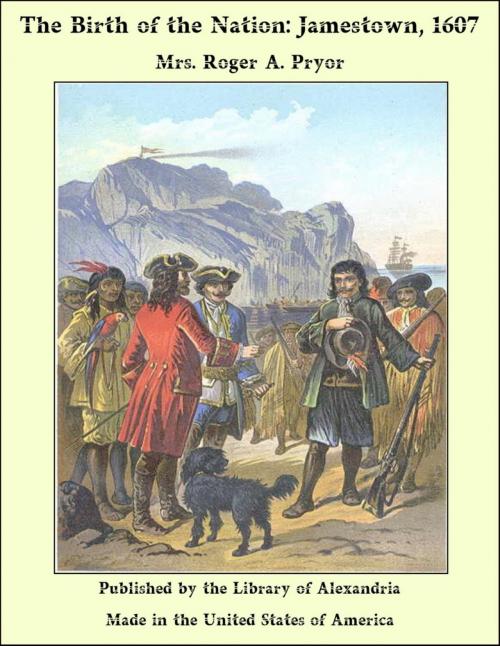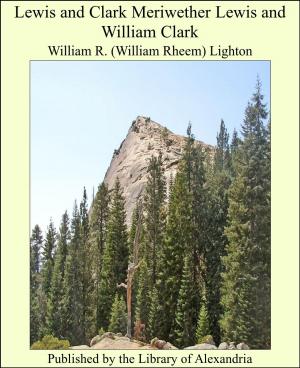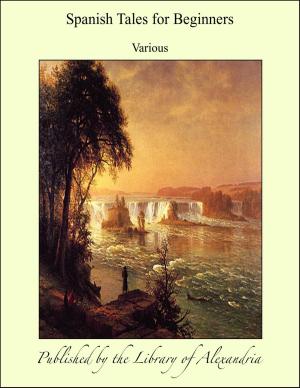The Birth of the Nation: Jamestown, 1607
Nonfiction, Religion & Spirituality, New Age, History, Fiction & Literature| Author: | Sara Agnes Rice Pryor | ISBN: | 9781465594983 |
| Publisher: | Library of Alexandria | Publication: | March 8, 2015 |
| Imprint: | Language: | English |
| Author: | Sara Agnes Rice Pryor |
| ISBN: | 9781465594983 |
| Publisher: | Library of Alexandria |
| Publication: | March 8, 2015 |
| Imprint: | |
| Language: | English |
We are about to commemorate the settlement of the English at Jamestown three hundred years ago. Under God's blessing, we are not only at peace with all the world, but are bound by ties of close friendship to the great kingdoms and republics on earth. Therefore, we may confidently expect to welcome numbers of their representatives to our three hundredth birthday celebration. Many will be the banners unfurled in waters which ebbed and flowed in awful silence but three hundred years ago, or were stirred only by the paddle of the Indian canoe; and loud the thunders of welcome and greeting from shores which echoed then with the scream of the eagle and the war-whoop of the savage. The story of a world emerging from the darkness in which it had been hidden for countless ages will always thrill the imagination. Phantom ships loom dimly out of the mists of a far-off time. Strange names are whispered in vague traditions, which are found in no written record—names of mighty mariners, who were blown by tempests upon a strange coast,—Arthur; Malgro; Brandon; a "Fryer of Lynn," who by reason of his "black art" reached the North Pole in 1360; Madock, "sonne of Quinneth, Prince of Wales," a man of peace, who sought refuge in a wilderness because of strife among his brethren; Leif, the Norwegian; Nicolo Zeno, the Venetian; Hanno, the Carthaginian! Colossal figures tremble for a moment on the horizon, and are lost in fog and doubt. At last the great Genoese sails forth, and becomes a tangible figure in history. Often as his story may be told, familiar as it is to every schoolboy in the land, we can never hear it without a keen realization of its personal relations to ourselves. "It would be impossible," said Daniel Webster, "for us to read the discovery of our continent without being reminded how much it has affected our own fortunes and our own existence. It would be unnatural for us to contemplate with unaffected minds that most touching and pathetic scene when the great discoverer of America stood on the deck of his shattered bark, the shades of night falling on the sea, yet no man sleeping; tossed on the billows of an unknown ocean, yet the stronger billows of alternate hope and despair tossing his own troubled thoughts; extending forward his harassed frame, straining westward his anxious and eager eyes, till Heaven at last granted him a moment of rapture and ecstasy, in blessing his vision with the sight of an unknown world." Intensely interesting are the narratives of the daring adventurers who followed Columbus—of the Cabots who landed and claimed the country for the English crown; of the Spaniards and Portuguese upon whom Pope Alexander the Sixth generously bestowed the world, giving to the Spaniards the western, and to the Portuguese the eastern part of it, for in those days it was but necessary for any pirate or sea adventurer from either nation to land and erect a stone or stick on the coast, to constitute a valid claim to possession in the name of Spain or Portugal and a right to drive out or exterminate the ancient inhabitants and owners of the land.
We are about to commemorate the settlement of the English at Jamestown three hundred years ago. Under God's blessing, we are not only at peace with all the world, but are bound by ties of close friendship to the great kingdoms and republics on earth. Therefore, we may confidently expect to welcome numbers of their representatives to our three hundredth birthday celebration. Many will be the banners unfurled in waters which ebbed and flowed in awful silence but three hundred years ago, or were stirred only by the paddle of the Indian canoe; and loud the thunders of welcome and greeting from shores which echoed then with the scream of the eagle and the war-whoop of the savage. The story of a world emerging from the darkness in which it had been hidden for countless ages will always thrill the imagination. Phantom ships loom dimly out of the mists of a far-off time. Strange names are whispered in vague traditions, which are found in no written record—names of mighty mariners, who were blown by tempests upon a strange coast,—Arthur; Malgro; Brandon; a "Fryer of Lynn," who by reason of his "black art" reached the North Pole in 1360; Madock, "sonne of Quinneth, Prince of Wales," a man of peace, who sought refuge in a wilderness because of strife among his brethren; Leif, the Norwegian; Nicolo Zeno, the Venetian; Hanno, the Carthaginian! Colossal figures tremble for a moment on the horizon, and are lost in fog and doubt. At last the great Genoese sails forth, and becomes a tangible figure in history. Often as his story may be told, familiar as it is to every schoolboy in the land, we can never hear it without a keen realization of its personal relations to ourselves. "It would be impossible," said Daniel Webster, "for us to read the discovery of our continent without being reminded how much it has affected our own fortunes and our own existence. It would be unnatural for us to contemplate with unaffected minds that most touching and pathetic scene when the great discoverer of America stood on the deck of his shattered bark, the shades of night falling on the sea, yet no man sleeping; tossed on the billows of an unknown ocean, yet the stronger billows of alternate hope and despair tossing his own troubled thoughts; extending forward his harassed frame, straining westward his anxious and eager eyes, till Heaven at last granted him a moment of rapture and ecstasy, in blessing his vision with the sight of an unknown world." Intensely interesting are the narratives of the daring adventurers who followed Columbus—of the Cabots who landed and claimed the country for the English crown; of the Spaniards and Portuguese upon whom Pope Alexander the Sixth generously bestowed the world, giving to the Spaniards the western, and to the Portuguese the eastern part of it, for in those days it was but necessary for any pirate or sea adventurer from either nation to land and erect a stone or stick on the coast, to constitute a valid claim to possession in the name of Spain or Portugal and a right to drive out or exterminate the ancient inhabitants and owners of the land.















